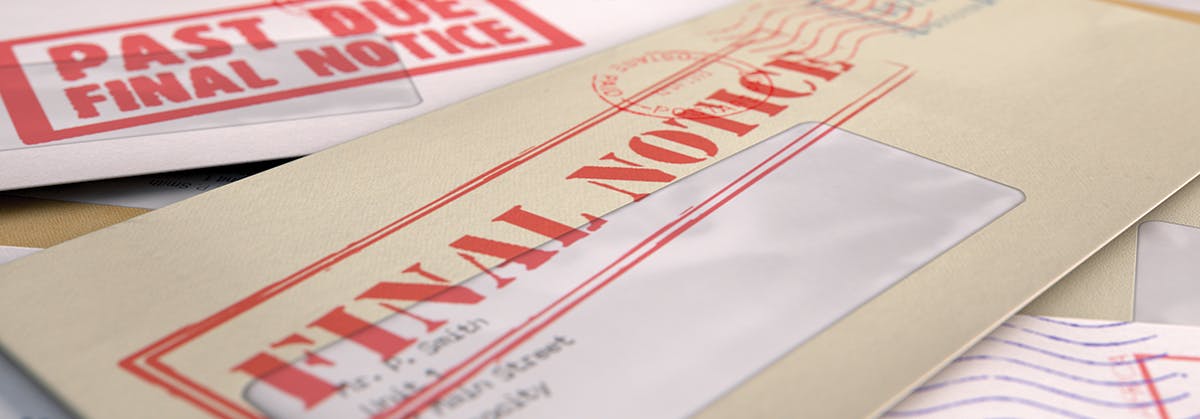
I'm in the process of filing for an eviction of a problem tenant. However, over the weekend, she informed me that she had just filed for Chapter 7 Bankruptcy. Can I still evict her?
–Jane in Arcadia, California
Dear Jane,
The answer is, as usual... it depends. There are three things to look at: The timing of the bankruptcy, in terms of whether or not you had a judgment or an eviction order in hand prior to the date of the tenant's declaration of bankruptcy, the reason for the eviction, and your jurisdiction.
Timing of the Bankruptcy
First, let's look at the big picture: When an individual files for bankruptcy, the courts impose an automatic stay on any collection efforts. Creditors, once informed of the stay, must cease contact and collection efforts until the bankruptcy process plays out.
Prior to 2005, this was a frequent problem for landlords, who could easily be frustrated by a tenant simply declaring bankruptcy to throw a monkey wrench into the eviction process. However, the Bankruptcy Abuse Prevention and Consumer Protection Act of 2005 tightened up the rules and reduced the opportunity for a bankrupt tenant to abuse the process at the landlord's expense.
Today, if the landlord gets the judgment against the tenant before the bankruptcy date, then the landlord wins. Bankruptcy provides little or no protection for the tenant in that circumstance, as long as the eviction was for a problem other than non-payment of rent.
Reason for Eviction
If the non-payment of rent is the only reason for eviction, however, some states will allow the bankrupt tenant "the opportunity to cure" by paying the back rent. In this case, the tenant must get a court certification that state law allows them the opportunity to cure, and they then have to serve the notice to the landlord. Generally, when this happens, the tenant has to deposit the amount of rent coming due within 30 days of the bankruptcy filing with the Clerk of the Court. The tenant then has 30 days from the filing date to catch up with any delinquent rent payments. In "opportunity to cure" states, if the bankrupt tenant manages to post rent due within 30 days, and then successfully pays up the delinquent rent, then the eviction can't go forward.
If the eviction is for some reason other than non-payment of rent, however, then you may be able to continue with the eviction. In that event, you must petition the court for relief from the automatic stay under Section 362(d). It's a bit of extra work for your lawyer (and maybe an extra fee for you), but most courts tend to grant it to landlords fairly regularly. You can use this provision if the tenant fails to pay post-petition rent payments, if the tenant fails to protect and maintain your property in accordance with the lease, or if you suspect illegal drug activity, etc. The automatic stay does not protect a bankrupt tenant under these circumstances.
Your Jurisdiction & Next Steps
In your case, though, you're in California. California is generally friendly to tenants using the bankruptcy process to thwart eviction, at least temporarily. If you have not already filed an unlawful detainer proceeding in Superior Court by the time the tenant files bankruptcy, it's going to take a while longer. If the tenant had the legal right to occupy your property when she filed for bankruptcy, the automatic stay prevents you from going forward with the eviction.
Your next move should be to document any damage caused by the tenant's failure to maintain or safeguard your property, or their participation in any illegal activity. In addition, fill out a sworn statement that you have commenced an unlawful detainer proceeding as a result of your tenant's neglect or abuse of your property, or the use of illegal drugs on the premises, within the last 30 days.
Next, have your attorney file with the court for relief from the automatic stay. The tenant will have 15 days to respond. If the tenant does not respond within that time period, you can then proceed with the eviction proceedings. If the tenant objects, the court will hold a hearing to decide.
Do not try to remove a bankrupt tenant yourself, or do anything like shutting off utilities or changing the locks. California requires all residential evictions to work their way through the courts. Don't do anything outside of what the court orders authorize you to do, or you could wind up facing liability yourself for constructive eviction.
Even if you've done many evictions in the past on your own, without an attorney, the presence of a bankruptcy changes the rules a lot. To stay out of hot water, it's vital to engage the services of a qualified legal professional.
